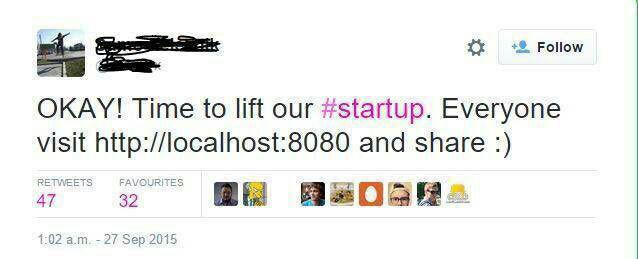Ranter
Join devRant
Do all the things like
++ or -- rants, post your own rants, comment on others' rants and build your customized dev avatar
Sign Up
Pipeless API

From the creators of devRant, Pipeless lets you power real-time personalized recommendations and activity feeds using a simple API
Learn More
Comments
-
 gibus3865yI've worked for a few startups, 3rd time was the charm. There's no on-size-fits-all answer; you just need to do your research:
gibus3865yI've worked for a few startups, 3rd time was the charm. There's no on-size-fits-all answer; you just need to do your research:
- research the execs: CEO, CFO, CTO, COO: What experience do they have? Find them on linkedin and see what kind of person they are.
- Are they a public company?: check how the stock has been doing. Reports and public listed salaries.
- In your experience is the product worth anything? Is it a pipe dream.
If X is a brand new company and is being run by one person do they have the business skills to get this thing off the ground?
Just dig up as much as you find until you know exactly what each company is about.
Good luck. -
If you're in final year of college, that means you don't have industry experience, right?
How much is that small start up, taking you in as a co-founder paying you?
Understand this... If a company is not public, or not going public in near future, equity means nothing.
It may never go public, or, it may go public a decade later. Most startups fail anyway.
A co-founder right out of college? Where's the industry experience? -
Lemme explain in depth.
You will be a co-founder.
But no one in the startup would know how much time does it take to actually have a stable software up and running. There may be undue pressure, poor decisions, bad management etc. -
If you're a cofounder, your shares aren't subject to remaining with the company, you can leave whenever and still retain your shares (option a is a non-issue). If you came on after the founding shares were issued, you're not a cofounder.
-
 ayushjn2685y@BugsBunny The pay is low (because there's no funding). Yes, I don't have industry experience apart from internships and freelance.
ayushjn2685y@BugsBunny The pay is low (because there's no funding). Yes, I don't have industry experience apart from internships and freelance.
The position is of Full-stack developer as I'll be building the whole product along with a tech advisor but I'll also be a co founder as in owner of the company. That is something, right? -
Let me ask you a few questions...
1) What is the overall industry experience that's there in your team? Is there someone who's been there, seen it?
2) Since the pay is low to start with, in coming years you'd want to grow, and earn more. Will the company be able to pay you then?
3) Will there be anyone in the company that can, you know, tell the tech team right from wrong, after having done it themselves?
4) What are the chances that the business will stay aloof 10 years from now?
What I'm trying to say is, even if your idea is good, another company with much more money and business plus technical experience may beat the shit out of your company.
Related Rants

 Lets all help them share their startup
Lets all help them share their startup True or not? ;)
True or not? ;) When your Boss is a programmer & humorous at the same time... :/
When your Boss is a programmer & humorous at the same time... :/
Fellow ranters, I need some advice.
Work at an early stage startup to build their initial product(let's call it X) or work at slightly established startup with funding(let's call it Y)?
Both have their own benefits.
Working at X:
- I have equity (and a co founder position) thus chances of high rewards if the startup is successful.
- I get to build the whole product from scratch (great learning experience).
Working at Y:
- Don't know much about the company but I get a decent stable income.
- Work with a team (although a small one).
- Job security.
I'm currently in my final year and have given up on campus placements. Moreover, I'm not interested in wasting my time in pointless interview preparations. So I figured that startup is the way to go.
question
career advice
startup
career